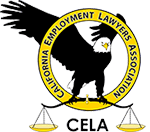If you’re a nursing mother, you are guaranteed certain rights during a workday under federal and California employment law. It is critical that you understand your rights to ensure you are being treated fairly in your workplace as a mother, including lactation accommodation and pregnancy disability in California.
Breastfeeding Laws under Federal Law
Federal law FLSA §7, entitled “Section 7(r) of the Fair Labor Standards Act – Break Time for Nursing Mothers Provision,” guarantees nursing mothers rights across the country.
This breastfeeding law requires employers to provide:
- a reasonable break time for an employee to express breast milk for her nursing child for one year after the child’s birth each time such employee needs to express milk; and
- a place, other than a bathroom, that is shielded from view and free from intrusion from coworkers and the public, which may be used by an employee to express breast milk.
However, the law also states that the employer is not required to compensate an employee for break time spent for such purpose.
Additionally, the law also states that an employer with fewer than 50 employees is not subject to these laws if providing lactation breaks would cause the employer “undue hardship,” either financially or structurally.
Breastfeeding Laws under California Law
For breastfeeding law specifics, refer to Labor Code sections 1030-1033, which prohibits retaliation against an employee who requests lactation accommodation or who attempts to express breast milk. Every employee desiring to express breast milk for the employee’s infant child shall be provided a reasonable amount of break time to do so. The break time shall, if possible, run concurrently with any break time already provided to the employee. Break time for an employee that does not run concurrently with the rest time authorized for the employee by the applicable wage order of the Industrial Welfare Commission need not be paid. The employer shall make reasonable efforts to provide the employee with the use of a room or other location, other than a toilet stall, in close proximity to the employee’s work area, for the employee to express milk in private. The room or location may include the place where the employee normally works if it otherwise meets the requirements of this section. An employer is not required to provide an employee break time for purposes of lactating if doing so would seriously disrupt the operations of the employer. Retaliation for requesting or using this accommodation is prohibited. In addition to other remedies that might be available, a civil penalty of up to $100 for each violation may be awarded.
Pregnancy Disability in California
California’s Pregnancy Disability Leave Law (Cal. Gov’t Code § 12945), or PDLL, allows an employee up to 4 months of leave when she is disabled by (1) pregnancy, (2) childbirth or a (3) related medical condition. The pregnancy leave need not be taken in one continuous period of time. “Related medical condition” is any medically recognized physical or mental conditions related to pregnancy, childbirth or recovery from pregnancy or childbirth, including lactation-related medical conditions. The PDLL makes it unlawful to refuse to grant pregnancy disability leave to a disabled employee or to retaliate against her for attempting to take or taking pregnancy leave.
An employee is disabled by pregnancy in California if, in the opinion of her health care provider, she is unable to perform one or more of the essential functions of her job or is unable to perform those functions without undue risk to herself, to the successful completion of her pregnancy or to other persons. An employee is also deemed disabled by pregnancy if, in the opinion of her health care provider, she is suffering from “severe morning sickness” or needs to take time off for prenatal or postnatal care, bed rest, gestational diabetes, pregnancy-induced hypertension, preeclampsia, postpartum depression, childbirth, loss or end of pregnancy, or recovery from childbirth or loss or end of pregnancy.
None of the 4-month pregnancy disability leave is counted toward the employee’s 12-week “baby bonding” leave under the Cal. Gov’t Code § 12945.2 California Family Rights Act (CFRA). Therefore, in California, an employee who becomes pregnant and is disabled by the pregnancy is entitled to up to 4 months of pregnancy disability leave under the PDLL plus 12 weeks of CFRA “baby bonding” leave.
PDLL leave is unpaid unless your employer pays for other temporary disability leaves. 2 Cal. Code Regs § 11044 (a). However, your employer must allow you to use any accrued vacation time, sick leave, or other accrued personal time off during the PDLL leave. Cal. Gov’t Code § 12945 (a) (1); 2 Cal. Code Regs § 11044 (b) (2).
Contact Pimentel Law If Your Workplace Rights Are Violated
Every mother should be able to take pregnancy disability leave in California and provide milk for a nursing child in a safe environment during work. If your employer has violated any of the above breastfeeding laws and you wish to learn more about your legal options, get in touch with Pimentel Law.
Pimentel Law has an extensive history of protecting worker rights in the greater Southern California area. They have achieved remarkable results representing workers who have been taken advantage of by unjust practices, and their testimonials can attest to that success. To learn how they can assist you in ensuring your rights under breastfeeding laws are protected, contact Pimentel Law today.
Schedule a free case evaluation, contact us today.






